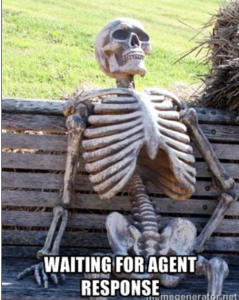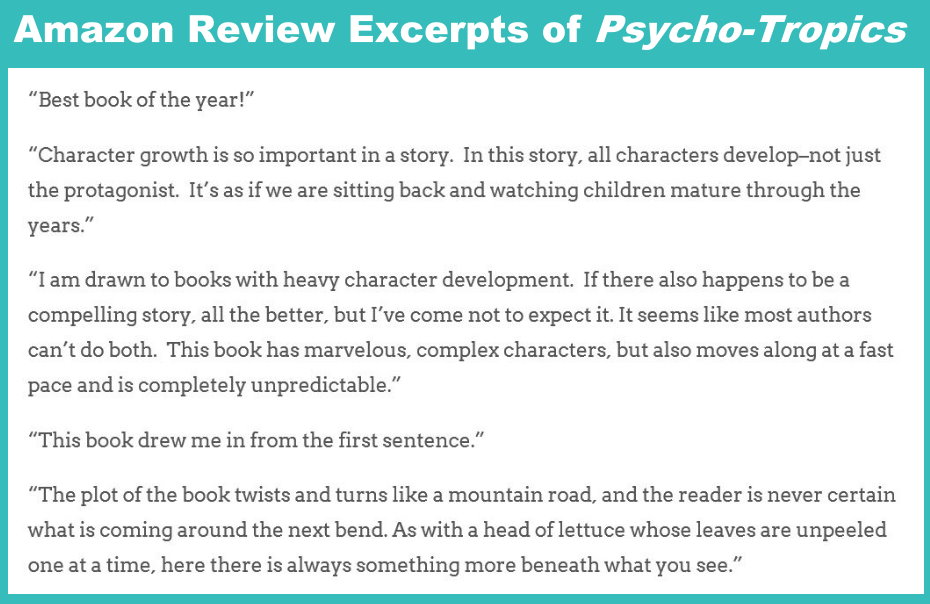![]()
As a novice literary publicist, I’m learning the term “self-published” still carries a stigma, even in an era where increasing numbers of reputable and established writers are making the decision to go straight to Amazon CreateSpace and Kindle, or similar services, rather than pursue the traditional agenting/publishing route. At root, the stigma is based on the belief that if a book is self-published, it can’t be good—that writers resort to self-publishing only because they were unable to obtain a “real publisher.” The assumption underlying this fallacy has been around a long time and has not dissipated despite revolutionizing technology advances in self-publishing and content distribution generally. Even going back to the “old days,” the list of famous self-published books and authors is pretty impressive.
The “Quality” Dismissal
Some reviewers claim they don’t read self-published books because of poor quality. They argue that self-published books contain typos and grammatical errors, the plots lack cohesiveness, and self-published writers haven’t reached the level where they deserve attention from professional reviewers. The problem is, this claim lumps all self-published books into one “poor quality” category. Like most stereotypes, the fact that the assumption is true some of the time, or even most of the time, certainly does not mean it is true all of the time. My guess is that most elitist reviewers of this type have never even picked up a self-published book.  I agree that a lot of self-published material really is subpar. Anyone can slap something together and put it on Amazon. But it is misguided to generalize that all self-published books fit in that category. Numerous self-published works are out there that are far superior to many traditionally published books. Many of them have been professionally designed and edited. The quality is such that no reviewer in the world would be able to tell they were self-published without asking or researching the name of the imprint (unless, of course, the author did not create an imprint and the front matter explicitly states the name of the on-demand publisher).
I agree that a lot of self-published material really is subpar. Anyone can slap something together and put it on Amazon. But it is misguided to generalize that all self-published books fit in that category. Numerous self-published works are out there that are far superior to many traditionally published books. Many of them have been professionally designed and edited. The quality is such that no reviewer in the world would be able to tell they were self-published without asking or researching the name of the imprint (unless, of course, the author did not create an imprint and the front matter explicitly states the name of the on-demand publisher).
The “We Don’t Have Time” Excuse
Other reviewers concede that not all self-published books are bad, but still refuse to consider reviewing them because there are too many to choose from, making it overly burdensome. For example, Roger Sutton, editor-in-chief of Horn Book magazine, states, “If we were to commit to giving self-published books the same level of scrutiny we give to what we already cover, I would need to increase our staff exponentially, which is not going to happen.” Roger Sutton: An open letter to the self-published author feeling dissed. I’m not denying that the number of books that reviewers receive can be overwhelming, but I have to agree with Arvind Dilawar, editor of The Airship, that “refusing to review any self-published book because you can’t review every self-published book is poor logic.” Arvind Dilawar: The deluge of the Information Age has made it difficult to keep pace, but that doesn’t mean we should discriminate so callously.
The “Gatekeeper” Argument
Related to the quality argument, some reviewers and media sources say they will only consider traditionally published books because they feel that “real” publishers serve as a sort of “gatekeeper.” Ron Charles notes in Henry Baum: “I don’t want to read your self-published book,” that traditionally published books are “the books that had to find an agent. And then a publisher. And then they were professionally edited. And now are being professionally marketed by people with money on the line.” This argument does have some merit; however, just because a book made the cut through a traditional publisher does not necessarily mean it is better or more professionally done than a self-published one. There are a lot of crappy books out there that somehow made it through this gatekeeper process. Moreover, the argument relies on the assumption that professional editors and marketers can only be obtained once the book has found an agent and publisher, and that self-published authors don’t have “money on the line.” That simply is not true. The best self-published authors have already done that legwork and may have a lot of their own money on the line as a result of hiring graphic cover art and layout artists.
Sometimes Self-Publishing is a Choice
Many terrific authors—plenty of whom have previously gone the traditional publishing route (Dorian Box, author of Psycho-Tropics, included)—choose self-publishing simply because they’re tired of dealing with the BS, including the interminable delays, they’ve encountered with the traditional agenting/publishing process. In this video, three bestselling authors–Theresa Ragan, James Altucher, and Maria Murnane–explain their disappointing experiences in the traditional arena and why they decided to forge their own paths on CreateSpace: https://www.youtube.com/watch?v=rUwjAGYXQm4 Ronald H. Balson, author of Once We Were Brothers, reasons, “Like other writers, I became impatient. I wanted to see the book in print before I died of old age. So my son and I . . . did it ourselves.” Ronald H. Balson: Bestseller Success Stories that Started Out as Self-Published Books. Once We Were Brothers is now at 1,547 Amazon reviews and counting.  Anyone who has been through the agenting process can attest to the frustration of the discourteous treatment. You do your research. You tailor a personalized letter to the agent. You send out your hopes and dreams. But no matter how riveting, polished, and professionally presented your work is, the chance of getting a non-form response to a query is about the same as being struck by lightning in a rubberized house. (As an aside, just as anyone can self-publish, anyone can hang out a shingle as an agent, so apart from proven, successful agents, why should people care so much about what they think?) Agents, reviewers, and the entire publishing industry need to see the winds of change. Look what happened to the music industry. Record companies imploded in large part because they refused to see the changes technology was wreaking in their world. Isn’t a musical artist releasing their own work—which is extremely common these days even for some of the biggest artists—a form of self-publishing? To self-published authors everywhere: believe in yourself and your work. Dare to dream! In the meantime, for those of you self-published writers who would like a shot at getting a review on some sites other than Amazon, here is a link to a list of legit reviewers for “indie” books: http://www.theindieview.com/indie-reviewers/.
Anyone who has been through the agenting process can attest to the frustration of the discourteous treatment. You do your research. You tailor a personalized letter to the agent. You send out your hopes and dreams. But no matter how riveting, polished, and professionally presented your work is, the chance of getting a non-form response to a query is about the same as being struck by lightning in a rubberized house. (As an aside, just as anyone can self-publish, anyone can hang out a shingle as an agent, so apart from proven, successful agents, why should people care so much about what they think?) Agents, reviewers, and the entire publishing industry need to see the winds of change. Look what happened to the music industry. Record companies imploded in large part because they refused to see the changes technology was wreaking in their world. Isn’t a musical artist releasing their own work—which is extremely common these days even for some of the biggest artists—a form of self-publishing? To self-published authors everywhere: believe in yourself and your work. Dare to dream! In the meantime, for those of you self-published writers who would like a shot at getting a review on some sites other than Amazon, here is a link to a list of legit reviewers for “indie” books: http://www.theindieview.com/indie-reviewers/.



Nice one Amy.
It’s about time someone stood up for self publishing, and clearly explained why it’s not all trash.
Some of my favourite books have been self published, so I’m definitely a fan.
Thanks
Big houses are inundated with manuscripts; only a small percentage of well-written books even make it to publication. Why not self publish? Why discount the vast numbers of books being self published?